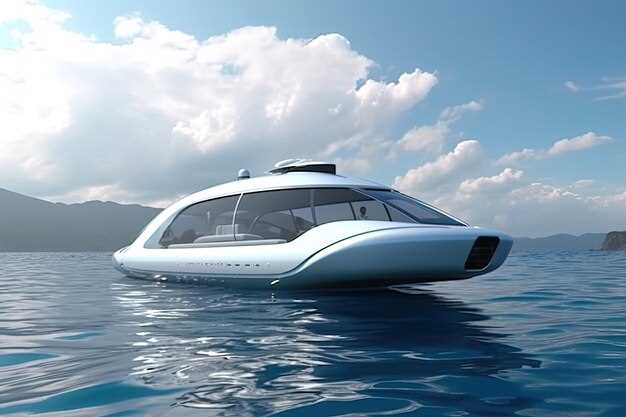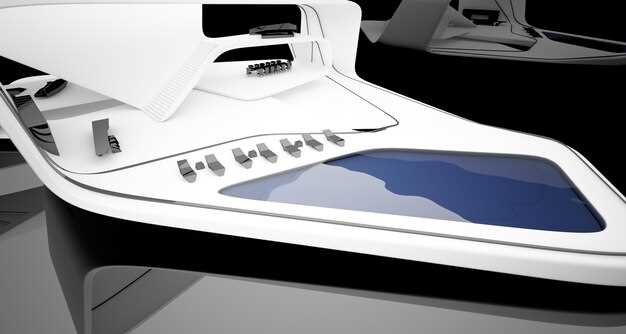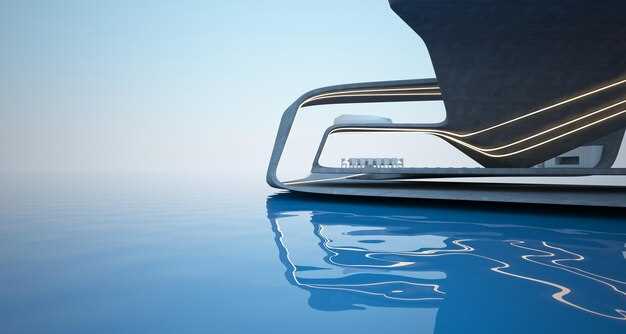
The world of luxury yachts has experienced remarkable transformations over the last decade, driven by innovations in design, technology, and sustainability. As affluent clients seek more personalized and extravagant experiences on the water, yacht manufacturers have responded with groundbreaking solutions that redefine opulence. This evolution reflects not only shifting consumer preferences but also a heightened awareness of environmental impact.
During this period, we have witnessed a significant increase in the incorporation of smart technology into yacht designs. Modern vessels are now equipped with cutting-edge systems that allow for seamless control of onboard amenities, enhanced navigation, and improved safety features. These advancements have elevated the yachting experience, enabling owners and guests to enjoy unparalleled comfort and convenience while exploring the high seas.
Additionally, sustainable practices have become a crucial focus in the luxury yacht industry. Builders are increasingly adopting eco-friendly materials and energy-efficient technologies, ensuring that luxury does not come at the cost of the environment. This commitment to sustainability is reshaping perceptions of luxury, as yacht owners strive to balance indulgence with responsibility.
Innovations in Yacht Design and Technology
Over the past decade, the yacht industry has witnessed remarkable advancements in design and technology, significantly enhancing the luxury experience for owners and guests alike. These innovations can be categorized into several key areas:
- Sustainable Materials: The use of eco-friendly materials, such as recycled aluminum and sustainable wood, has gained popularity. These materials not only reduce the environmental impact but also offer enhanced durability and aesthetic appeal.
- Hybrid and Electric Propulsion: Many modern yachts are now equipped with hybrid propulsion systems, combining traditional diesel engines with electric motors. This innovation allows for reduced fuel consumption, lower emissions, and quieter operation, enhancing the overall experience on board.
- Smart Technology: The integration of smart technology has transformed yacht operations. Owners can now control lighting, climate, and entertainment systems through mobile devices or dedicated interfaces, providing convenience at their fingertips.
- Advanced Navigation Systems: State-of-the-art navigation systems featuring AI and machine learning have improved safety and efficiency in yacht travel. Real-time weather data, automatic course adjustments, and collision avoidance systems contribute to a smoother journey.
- Interior Design Innovations: Customization options in interior design have expanded, allowing owners to create personalized living spaces. Features such as open-plan layouts, floor-to-ceiling windows, and seamless indoor-outdoor areas maximize comfort and enjoyment.
- Stabilization Technology: Modern yachts are equipped with advanced stabilization systems, such as gyroscopic stabilizers. These technologies significantly reduce roll and improve stability while at sea, enhancing comfort for guests.
- Energy Efficiency: Incorporating energy-efficient systems, including solar panels and advanced insulation, has become commonplace. These innovations allow yachts to operate more sustainably while reducing operational costs.
These advancements in yacht design and technology not only reflect changing consumer preferences but also set new standards for luxury and performance in the marine industry.
The Impact of Sustainability on Luxury Yachting

Over the past decade, the luxury yachting industry has undergone a significant transformation driven by a growing awareness of environmental issues. Sustainability has become a central theme in yacht design, construction, and operation, reflecting the industry’s commitment to minimizing its ecological footprint. As affluent consumers increasingly prioritize eco-friendly practices, yacht manufacturers and designers are responding by integrating sustainable technologies and materials into their vessels.
One of the most notable changes is the shift towards hybrid and fully electric propulsion systems. These technologies reduce reliance on traditional diesel engines, significantly lowering emissions and fuel consumption. High-profile brands have invested in developing yachts powered by renewable energy sources, such as solar and wind, which not only enhances efficiency but also resonates with the values of environmentally conscious owners.
Moreover, the choice of materials has evolved, with a growing emphasis on using sustainable resources. For instance, luxury yachts are now often constructed with eco-friendly composites, reclaimed wood, and non-toxic finishes. This trend not only reduces environmental impact but also promotes ethical sourcing practices, which are increasingly important to modern consumers.
Water management systems are also being revamped, incorporating advanced technologies that allow yachts to recycle wastewater and minimize fresh water usage. Additionally, sustainable waste disposal systems ensure that yacht operations adhere to environmental regulations, further solidifying the luxury yachting sector’s commitment to sustainability.
Beyond the technical advancements, the cultural shift within luxury yachting is equally significant. Owners are now more inclined to invest in yacht charters that emphasize eco-friendly practices, such as eco-label certifications and sustainability programs. This trend highlights a broader societal movement towards responsible luxury, where adherence to sustainable practices enhances the prestige and appeal of yacht ownership.
The impact of sustainability on luxury yachting is profound, fostering innovation and redefining industry standards. As environmental concerns continue to take center stage, the future of yachting promises to blend luxury with responsibility, ensuring that the beauty of the oceans is preserved for generations to come.
Changing Consumer Preferences in the Yacht Market

The luxury yacht market has undergone significant transformations over the last decade, primarily driven by evolving consumer preferences. Today’s yacht buyers are not only seeking opulence but are also placing a growing emphasis on sustainability, technology, and personalization.
One of the most notable shifts in consumer behavior is the rising demand for eco-friendly options. Buyers are increasingly interested in yachts that implement sustainable practices, such as hybrid propulsion systems and solar panel installations. This trend reflects a broader societal shift towards environmental consciousness, where luxury is no longer seen solely through the lens of excess but also through responsible consumption.
Technological advancement has reshaped the luxury yacht experience, with consumers now expecting cutting-edge amenities and integrated smart systems. High-tech features such as automated systems for lighting, climate control, and entertainment systems are becoming standard, enhancing both convenience and comfort. This technological integration appeals to younger affluent buyers who prioritize innovation and modernity.
Furthermore, the demand for customization has soared. Today’s luxury yacht owners do not just want a vessel; they desire a unique reflection of their personal style and preferences. Builders are increasingly offering bespoke options, allowing consumers to design every aspect of their yacht, from layout to materials used. This trend highlights a shift from mass production to individualized craftsmanship in the luxury market.
Additionally, the importance of onboard experiences has grown significantly. Luxury yacht buyers are focusing on features that enhance leisure, such as expansive outdoor spaces, advanced water toys, and wellness facilities like spas and gyms. These amenities cater to a lifestyle where relaxation and recreation take precedence, demonstrating that luxury is defined by experiences rather than mere ownership.
In conclusion, the luxury yacht market is evolving in response to changing consumer preferences, with an emphasis on sustainability, technology, personalization, and enhanced experiences. The modern yacht buyer is well-informed and seeks more than just extravagance–they aspire for a harmonious blend of luxury and responsibility.



